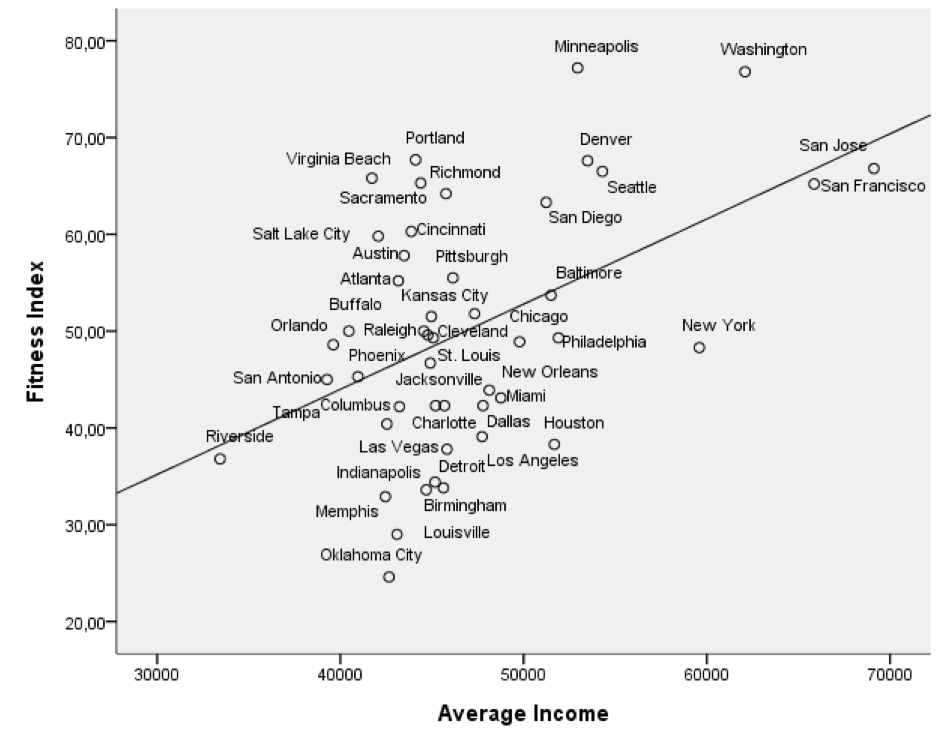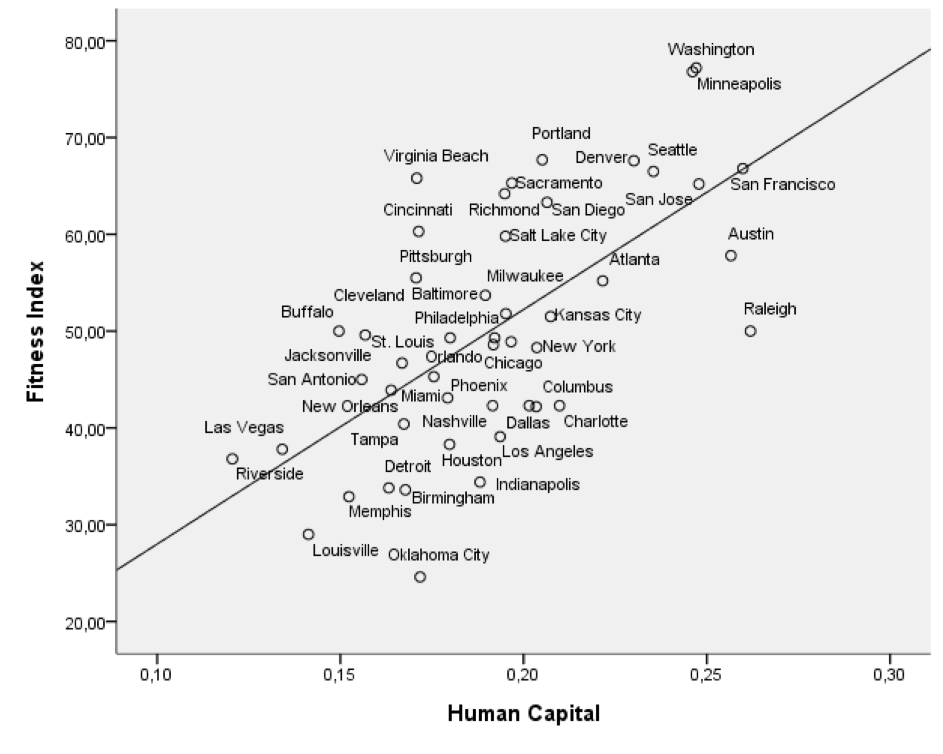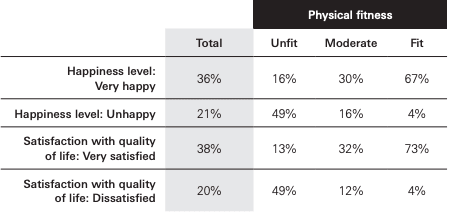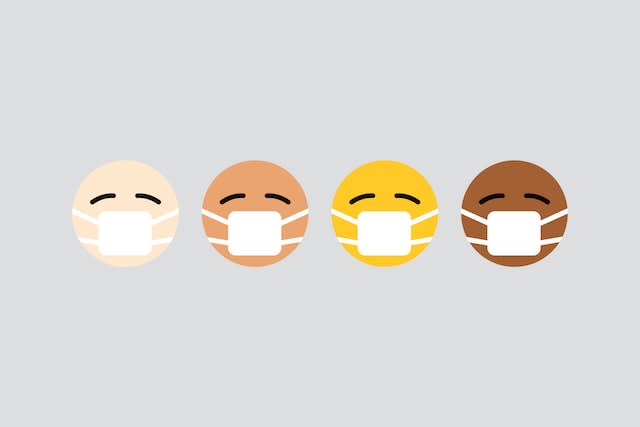Health is Wealth - Fact or Fiction?

Building Blocks Of Life
In a survey of 10,000 people in China, Hong Kong and the UK, as well as over 2,000 people in Singapore, a HSBC Study sought to find out whether physical, mental and financial health are interconnected. Let’s dive into their insights and correlate it to other studies to find out if this old saying of health = wealth continues to hold true.
We will be focusing on two areas of the study:
Are physical, mental and financial well-being interconnected?
Health is wealth, but does having wealth necessarily mean being healthy?
Physical, Mental And Financial Well-Being Are Interconnected
The HSBC study found that financial health improves with better physical and mental health.
In Singapore, 87% of those who said they were physically healthy also indicated they were mentally fit, whereas 55% of the above said they were also financially fit. In contrast, out of the group that said they were physically unfit, only 37% said they were mentally fit and 23% said they were financially fit.
There are various studies that might prove this theory true.
Financial Health Leads To Better Physical Health
Another study by The Atlantic, which studied the healthiest cities in the USA, revealed that the fittest cities in the USA are Minneapolis and Washington D.C. These cities are also the most financially fit and highest educated compared to the rest of the American cities.

Source: The Atlantic
The study showed that people with higher average income in Minneapolis and Washington D.C. have better fitness. One conjecture is that better medical services, healthy or organic food options, supplements and gym memberships can be expensive for the lower income population and therefore might not be a priority for them.

Source: The Atlantic
In the same study, we can see that human capital in Minneapolis and Washington D.C. is also higher compared to other cities. Human capital refers to the skills, educational level and other factors which contribute to the workforce and economy. Higher educational levels will most likely lead to better job opportunities and higher salaries, resulting in better health due to better financial health.
Healthy Incomes Lead to Long Lives

In an academic study on the US by the Urban Institute and the Virginia Commonwealth University, being financially healthy means you have a lower chance of catching diseases, which thus increases your lifespan. Results in the study show that the lowest income bracket of people surveyed are up to three times at risk of getting diseases — such as coronary heart diseases, kidney disease and liver disease — compared to the highest income bracket. People with less than US$35K in annual family income report up to four times nervousness and sadness compared to the US$100K annual family income bracket. In the same study, the highest income group can live up to six years more on average compared to the lowest income group, which indicates that financial stability can lead to longevity too.
Social Inequalities: Does It Affect Physical and Mental Health?

In an article by News Medical, American households that have negative or no income will have less resources in case of unemployment, unexpected illness or other situations that incur hefty expenses. This affects the financial, physical and social stability of the person.
Similarly, ill health can affect work performance, lead to absenteeism or an early exit from work without adequate financial support. There are massive medical and labour costs that physically compromised people may have to bear, which might add additional stress and affect their mental health.
One of the solutions proposed in the article is to contribute to charity if you are in good financial health. If you are not financially healthy yet but are in good physical or mental health, perhaps you can spend your time volunteering. A study in the UK has found that giving back to others can be a way to improve mental health and feel more engaged with our community.
Health is Wealth, But Having Wealth Doesn’t Necessarily Mean Being Healthy
A vast majority (93%) of the respondents in Singapore who completed the HSBC survey believe that wealth cannot be enjoyed without physical health, while 91% of respondents believe that wealth cannot be enjoyed without mental health. Singaporeans seem to feel that physical and mental health are prerequisites to being wealthy.
In the same HSBC survey, however, most respondents across all income levels feel that the average household income does not determine their physical, mental and financial health.
Satisfaction and Utility

A study conducted by the Harvard Kennedy School found that satisfaction and utility decrease by about 11% with poor health. This might be due to the extra financial costs racked up due to health issues. Physically healthy participants eat better — and thus gain more satisfaction — with a similar income spent. Short-term financial costs due to poor health also reduce retirement and savings in the long run, leading to reduced satisfaction and utility in one’s later years.
Balancing Your Physical, Mental and Financial Health
Most Singaporeans consider physical, mental and financial health of equal importance. How do you balance and keep fit in all three areas of your life?
Physical Health

Physical capital is explained in an article by AXA: it simply refers to one’s ability to earn money and create investments. When one has better physical health, he would theoretically have more energy to earn money through employment and live longer (which also extends long-term investments and their returns).
The Rutgers University study supports the AXA article in its findings, indicating that time is a major factor when it comes to physical capital and wealth. The study also explains the converse, where poor health burdens a household financially through disability, sickness and death. According to the Rutgers University article, one exception to the compromise of physical capital is preventable and treatable illnesses such as obesity, diabetes and hypertension, all of which can be corrected by a healthier diet and regular exercise.
Mental Health

The American Psychiatric Association reports that 72% of Americans stress about money at least once in March 2022. Money and mental health have a very symbiotic relationship, with each one heavily impacting the other. In a Betterup article, poor mental health can lead one to making poor financial decisions, while financial issues can also cause a drain on one’s mental health.
To strike a balance between financial and mental health, one can organise their budget by setting goals, monitoring their spending and thus overcome the financial stressors. Practising breathing and mindfulness techniques can also help to improve mental health for better decision making.
Happiness and Satisfaction

Source: HSBC Study
In the HSBC study, fitness is found to correlate with both happiness and satisfaction. Results have shown that fitter people seem to be more satisfied with their lives, while those who are less fit are unhappier and more dissatisfied with their lives.
A Harvard Business Review article explains that even though wealthier people are happier, financial management is still important for enhancing one’s happiness. The article further explains that how one spends, saves and thinks about their money can boost their happiness. The takeaway? Spend money on experiences, not things. Investing in time-saving services and helping others can help us lead a more satisfactory life.
Financial Health

According to Investopedia, financial health is the state and stability of an individual's personal finances and financial affairs. Financial health is determined by several key indicators, such as savings, net worth and debt.
One of the strategies to achieve optimum financial health is budgeting (for instance, the 50-30-20 rule). One indicator of financial health is achieving financial independence to retire early (read more about the FIRE Movement).
Unexpected Costs Due To Poor Health
Financial costs due to poor physical health can incur debt and lesser cash on hand for other needs. Mounting debt and little cash for enjoyment might contribute to adverse mental health.
Here are some ways to protect yourself against unforeseen events.
Set Up An Emergency Fund

By using the 50-30-20 rule mentioned above, you can stash away 20% of your income every month in a savings account. The emergency fund provides a financial buffer in case of large, unexpected expenses such as major repairs for your car and home, a sudden illness or unemployment. You can start as small as S$200 – S$500 a month, and build your fund up to at least six months’ worth of living expenses. A high-interest savings account such as the DBS Multiplier can aid you in your goal.
Read More: Save Smart: How To Consolidate Your Spending and Earn While Doing It
High Interest Savings Accounts to Consider
OCBC 360 Account
Standard Chartered Bonus$aver Account
DBS Multiplier Account
Buy Insurance

Having sufficient insurance shields you from unexpected financial costs that come with poor health. Here are several insurance types you can consider for your physical, mental and financial health.
Health Insurance
An Integrated Shield Plan is a government initiative that allows Singaporeans to pay (via CPF) for hospitalisation insurance and upgrade to private hospitals and specialists at a cheaper rate. This saves you money on hospital, specialist and other related bills. Some integrated shield plans with high deductibles even allow a patient to request for the best wards in any hospital of their choice without additional payment.
Health Insurance to Consider
Prudential PRUShield Plus
Great Eastern GREAT SupremeHealth P Plus
AIA HealthShield Gold Max A
Critical Illness Insurance
Critical illness insurance is an emergency insurance for long and exorbitant diseases such as heart disease, cancer and stroke. Critical illnesses are not usually covered by the typical health insurance. Critical illness insurance can be paid out for early diagnosis of diseases or cancer. People intending to purchase critical illness insurance should take note that this type of insurance usually has an extensive list of diseases and exclusions.
Critical Illness Insurance to Consider
FWD Big 3 Critical Illness Insurance
HL Assurance Early Protect360
Great Eastern GREAT Family Care
Conclusion
There is certainly much truth in the old saying “health is wealth”, as physical, mental and financial health are indeed connected in all aspects. Budget wisely, setting up adequate emergency funds and getting enough insurance coverage can help to take care of your financial health, leaving you better equipped to focus on your physical and mental health so that you can live a fulfilling life.
Read More:
The article originally appeared on ValueChampion.
ValueChampion helps you find the most relevant information to optimise your personal finances. Like us on our Facebook page to keep up to date with our latest news and articles.
More From ValueChampion:
Best Health Insurance in Singapore

 Yahoo Finance
Yahoo Finance 
